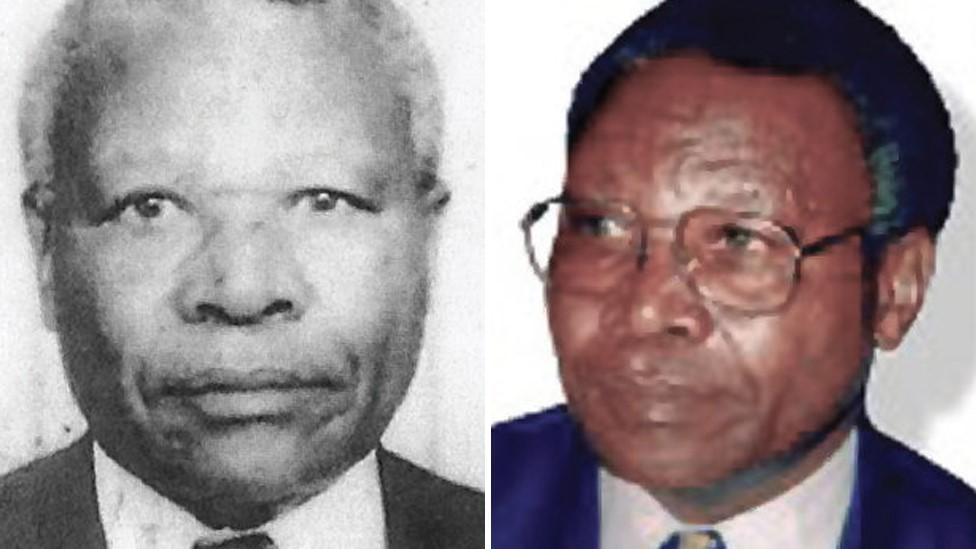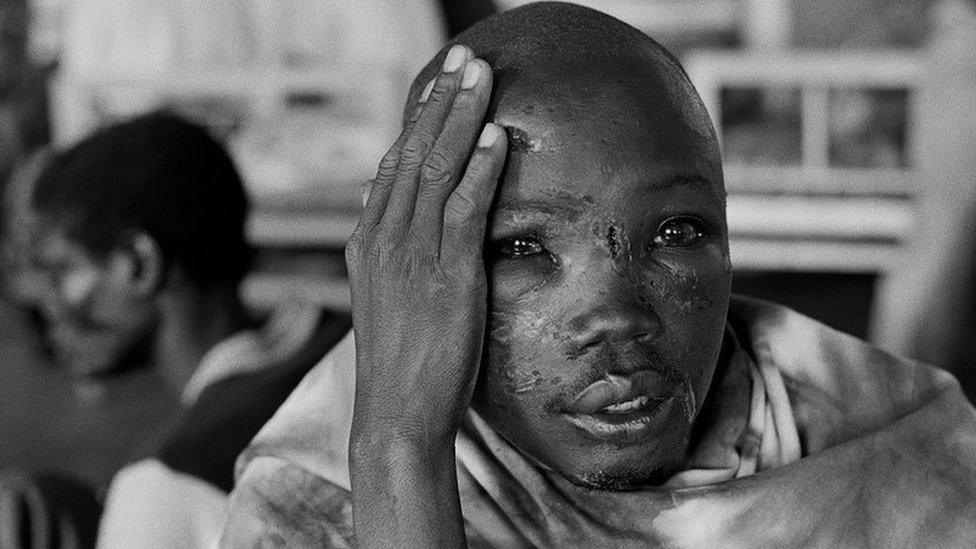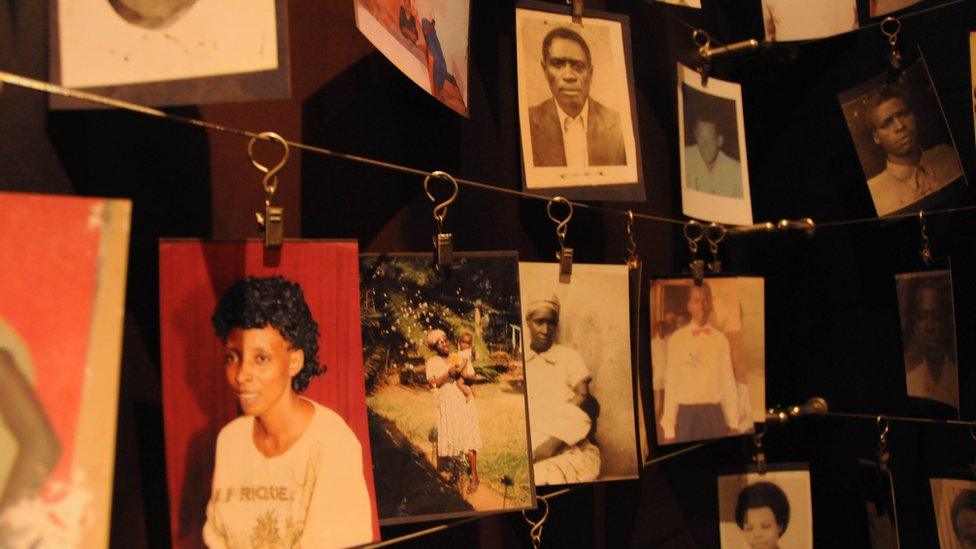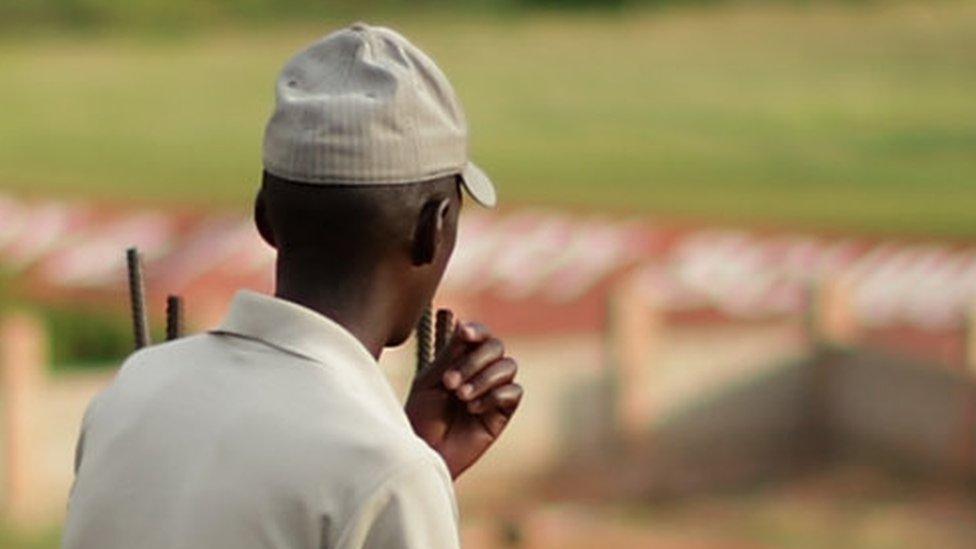Félicien Kabuga: Captured fugitive denies financing Rwanda's genocide
- Published

Félicien Kabuga, once one of Rwanda's richest men, used 28 aliases to evade capture
The man accused of financing the Rwandan genocide has denied playing a role in the massacres.
"All of this is lies. I have not killed any Tutsis. I was working with them," Félicien Kabuga told a French court during a bail hearing.
The 84-year-old businessman was arrested earlier this month in a suburb in Paris after 26 years on the run.
He is alleged to have backed and armed ethnic Hutu militias who slaughtered about 800,000 people in 1994.
Over 100 days they targeted members of the minority Tutsi community and their political opponents, irrespective of their ethnic origin.
Mr Kabuga also founded and funded the notorious Radio Télévision Libre des Mille Collines (RTLM), a Rwandan broadcaster that actively encouraged people to search out and kill anyone who was from the Tutsi ethnic group.
Between April and July 1994, an estimated 800,000 Rwandans were killed in the space of 100 days.
In 1997 he was indicted by The International Criminal Tribunal (ICTR) for Rwanda on seven counts including with genocide and crimes against humanity., external
The UN tribunal wound up its operations in 2015 and its duties were transferred to a body at The Hague that handles outstanding war crimes cases and is pressing for Mr Kabuga's extradition.
Bail rejected
His lawyers argue that Mr Kabuga, who was detained in a dawn raid on 16 May in the suburb of Asnières-sur-Seine where he had been living under a false identity, should be tried in France instead of being transferred.

Who is Félicien Kabuga?
Considered the richest man in Rwanda before the 1994 genocide
Made his fortune from tea in the 1970s and ventured into many other sectors at home and elsewhere
Was close to the ruling MRND party - and related by marriage to President Juvénal Habyarimana, who died in 1994
Accused of being the top sponsor of the genocide plan and using his business and premises to organise and fund the killing
The main owner of the private radio station RTLM that was accused of inciting ethnic Hutus to kill Tutsis
The United States had offered a reward of $5m (£4.1m) for information leading to his arrest

BBC Great Lakes reporter Samba Cyuzuzo says Mr Kabuga's denial in court, made in Kinyarwanda and translated by an interpreter, were his first public comments in more than a quarter of century.
Police say during this time he used 28 aliases to evade capture.
The court rejected a request to release Mr Kabuga on the grounds of age and ill health as prosecutors said the octogenarian was a flight risk.
It will rule on the extradition request on 3 June.
Whilst on the run Mr Kabuga is alleged to have stayed in many countries in East Africa, including Kenya, where he and his family had business interests.
The search is still on for six other Rwandans accused of genocide.
Dozens of Hutus were convicted for their role in the killings by the ICTR and hundreds of thousands more faced trial in community courts in Rwanda.
- Published4 April 2019

- Published14 December 2015

- Published7 April 2019
